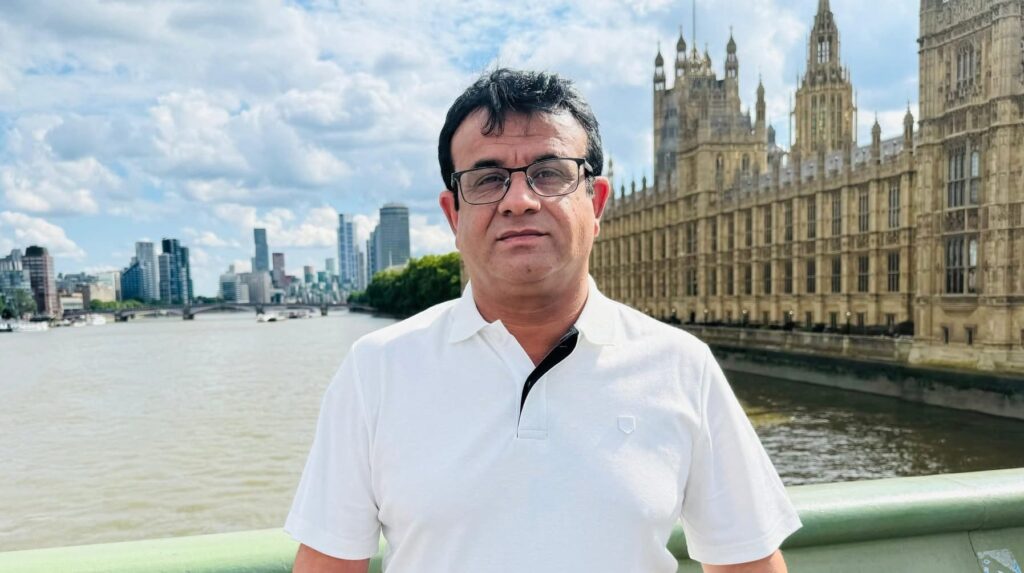
Baloch National Movement (BNM) Chairman Dr. Naseem Baloch, reacting to the recent India-Pakistan tensions, has said that the conflict between the two countries is not merely a bilateral issue, but a continuation of the historical tragedy of the Partition of India—a catastrophe whose consequences still afflict Balochistan and the entire region.
He stated that the Partition disrupted the continuity of ancient states and nations in the region, shattering any hope of long-term peace and stability. As a result, a constant state of cold and hot wars looms over South Asia.
Dr. Baloch criticized India’s recent limited and ambiguous strikes on Pakistan and the surrounding political rhetoric of war and victory, noting that the key aspect being overlooked is the clear stance of oppressed nations such as the Baloch, Pashtuns, Sindhis, and Kashmiris, who have distanced themselves from this conflict. According to him, this is a war between the Punjabi establishment of Pakistan and the Indian state, not the occupied nations.
He emphasized that if India truly desires sustainable peace, development, and a decisive end to Pakistani-sponsored terrorism, it must move beyond symbolic military strikes and instead address the fundamental political dynamics of the region. He urged India to recognize the status of occupied nations, understand the regional balance, and formulate a comprehensive and transparent political-military roadmap. Limited strikes alone, he said, will not weaken a nuclear-armed, ideologically extremist state like Pakistan.
Dr. Naseem Baloch called the Mountbatten Plan a dagger still embedded in the chest of the subcontinent. “Blood continues to flow from this wound,” he said, adding that unless this historical injustice is acknowledged, the region will remain trapped in a cycle of violence and instability. He described Pakistan as an artificial state, created through a hateful ideology and colonial design, which has turned the resources of entire nations, including nuclear weapons, over to a radicalized military—posing a threat not only to India but to regional and global peace.
Referring to the recent terrorist attack in Pahalgam, which resulted in the killing of innocent civilians and is believed to be backed by the Pakistani state, Dr. Baloch asserted that terrorism is the core of Pakistan’s domestic and foreign policy. He accused the state of running a well-organized network of terrorism, supported at the ideological, financial, and military level. Even when close associates of global terrorist Maulana Masood Azhar are killed, he said, Pakistani military leadership publicly participates in their funerals—sending a clear message that state terrorism is not going to stop.
The BNM Chairman concluded by stating that no plan for peace, stability, or development in the region can be effective unless there is a formal acknowledgment of the historical blunders committed on August 14, 1947. He emphasized that it is essential to recognize the structural contradictions of the Pakistani state, and most importantly, to acknowledge the national identity, historical status, and freedom struggle of occupied nations—particularly Balochistan.
He asserted that this is the only viable path to lead the region away from perpetual war, terrorism, and instability, and toward a peaceful, balanced, and prosperous future.

